With new research around the corner to back it up, we wanted to take all of the key pieces of community that we had discussed so far this year and combine them to talk more about how communities not only create, but also accelerate impact.
We can talk about metrics (and we will!), but what comes up when you talk about the value of a community and the value of the many aspects of a community?
Here's what we found...
May in TheCR Network: Roundtable Calls
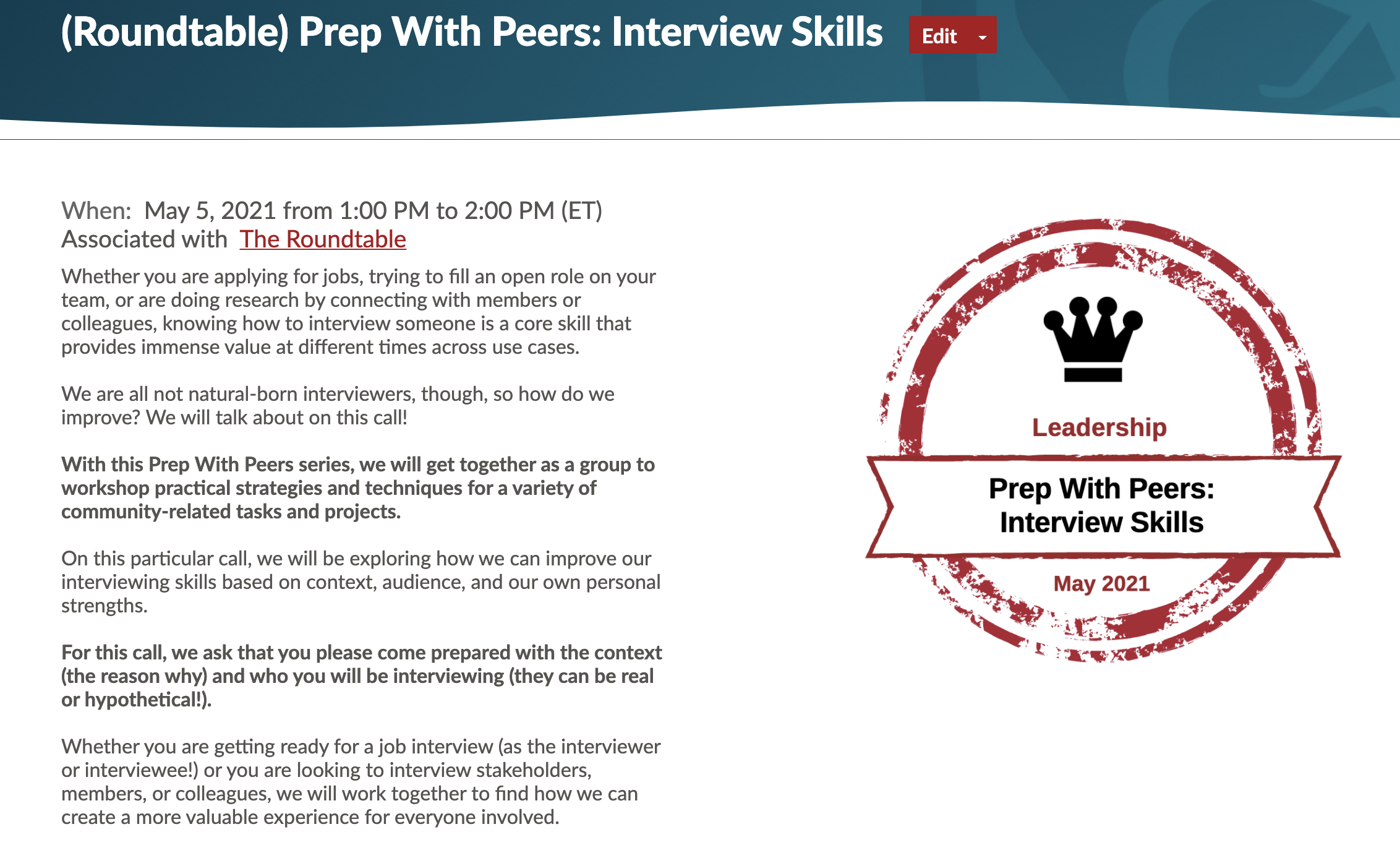
Our first call of May was another one of our Prep With Peers series, this time focusing on interview skills. But, except of only thinking about interviewing in the context of hiring, we also looked at the skills we used when talking with stakeholders, executives, and leaders in our communities.
In simply reframing those conversations, we can think more about how we can get the outcome we are looking for while preparing for the conversations themselves.
We talked about having our purpose for the conversation in mind, but also leaving space for the discussion to direct itself to a degree. We should have questions and prompts, but we also should not over-direct the conversation. The best information comes from the pauses more often than not.
If you have a suggestion for the next Prep With Peers call, contact @Kelly Schott to talk more.
|
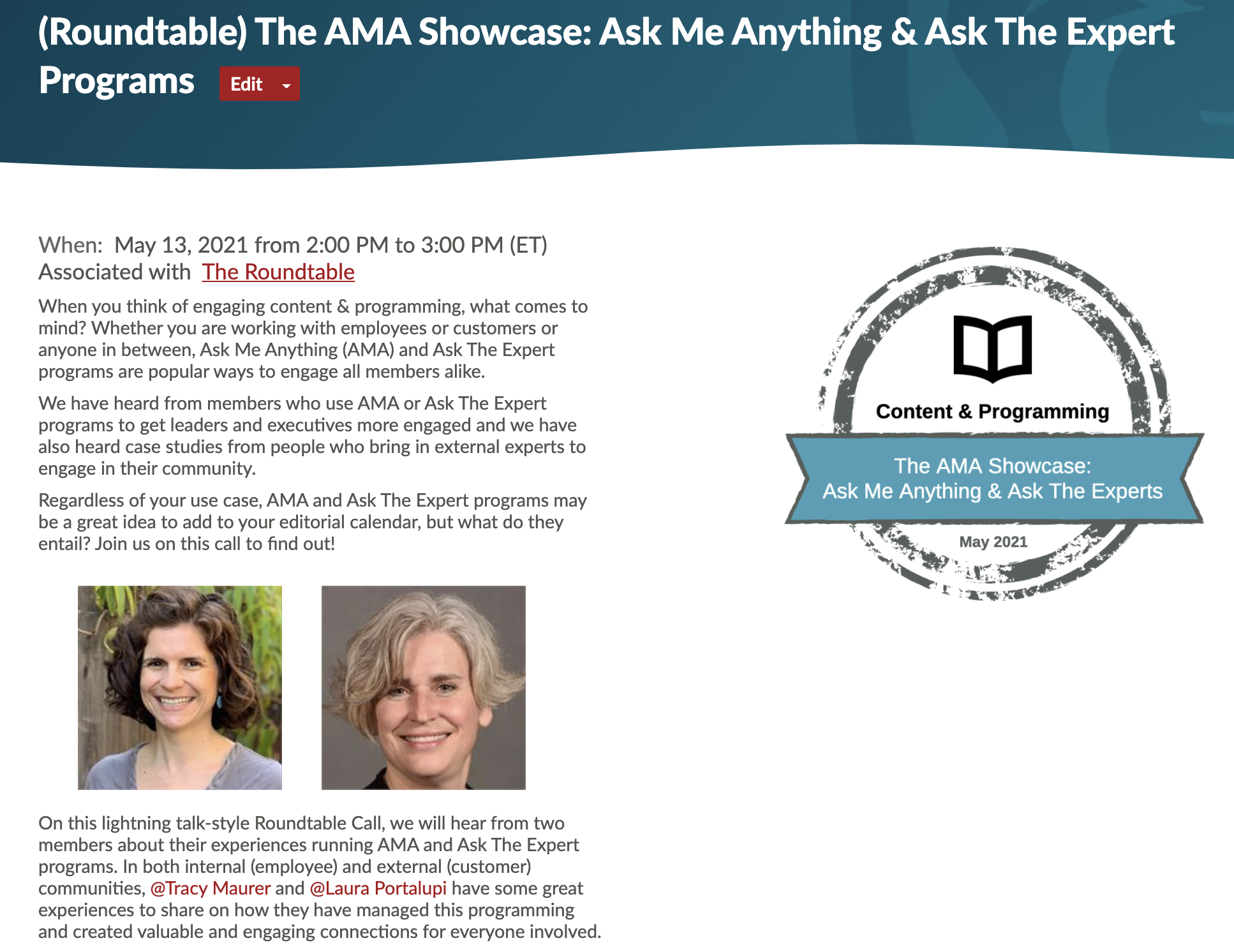
Our next call, "The AMA Showcase: Ask Me Anything & Ask The Expert Programs", focused on exactly that: how members approach Ask Me Anything (AMA) and Ask The Expert programs in their communities.
We heard from two members who shared about their experiences in two different use cases (one external and one internal, along with another internal as a second example) and talked about the pros, cons, and goals for these types of programs.
One takeaway for me was that, because each use case is different, how we implement these programs can and should be different. Time zones, culture, and tools all factor into how we can structure and manage these programs, as well as how we measure their success.
If you want to listen into this call, you can find the edited Roundtable Recording here.
|
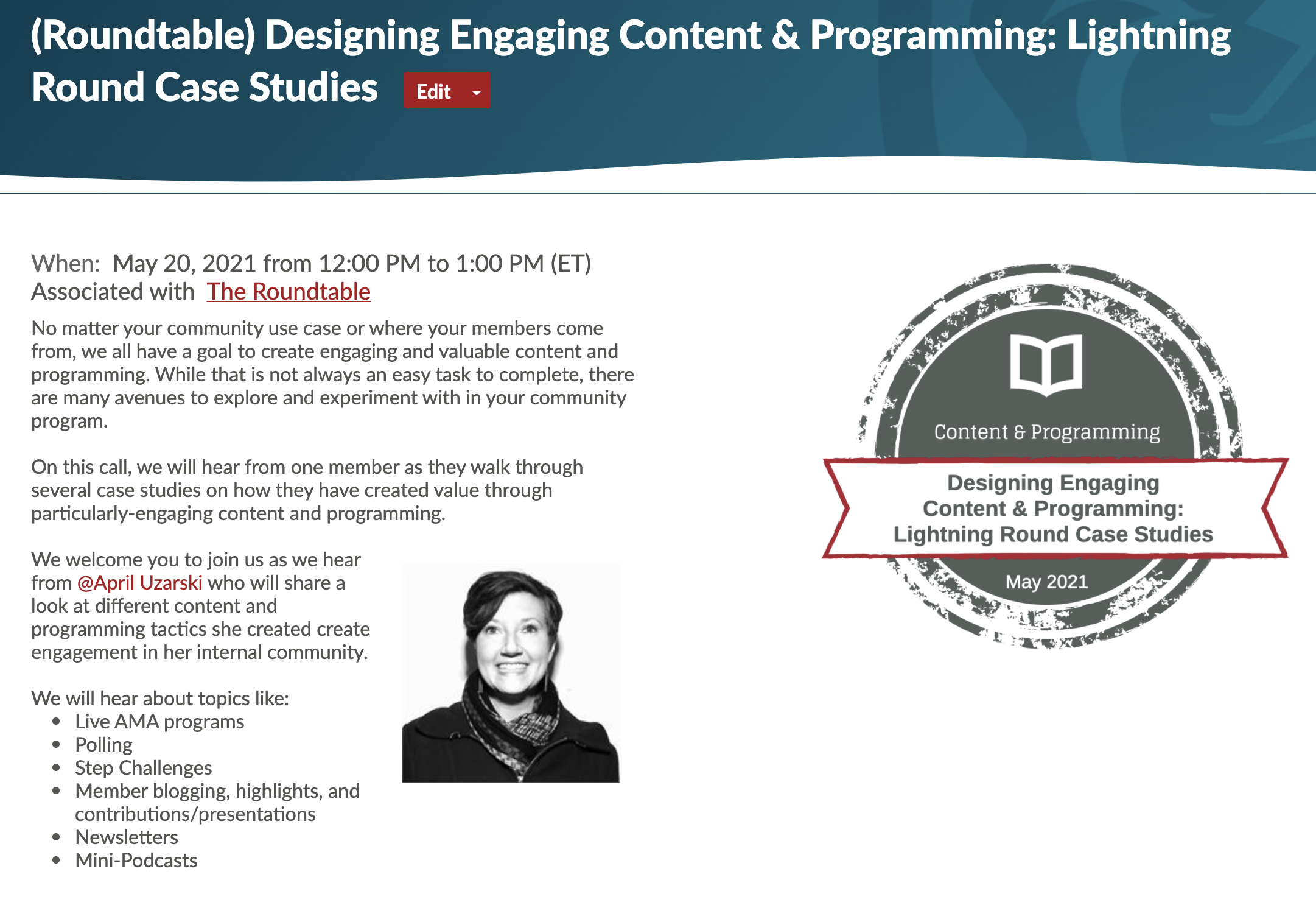
Midway through the month, we continued the theme of examples with a Roundtable Call fully focused on case studies: "Designing Engaging Content & Programming: Lightning Round Case Studies".
On this call, one member took us through several community content and programming projects she built out and ran in her internal community, which served as both amazing inspiration as well as great how-tos on how to manage these kinds of projects.
One of the key pieces of information I took away from this call was all about consistency and building content and programming that fits your community's culture. Knowing your members is key to understanding what content and programming they might appreciate and engage with, and you cannot quit right away if it does not catch on immediately. Be consistent and keep trying, tweaking, and tailoring to your members' needs and motivations.
If you are interested in listening in to this call, you can find the edited Roundtable Recording here.
|
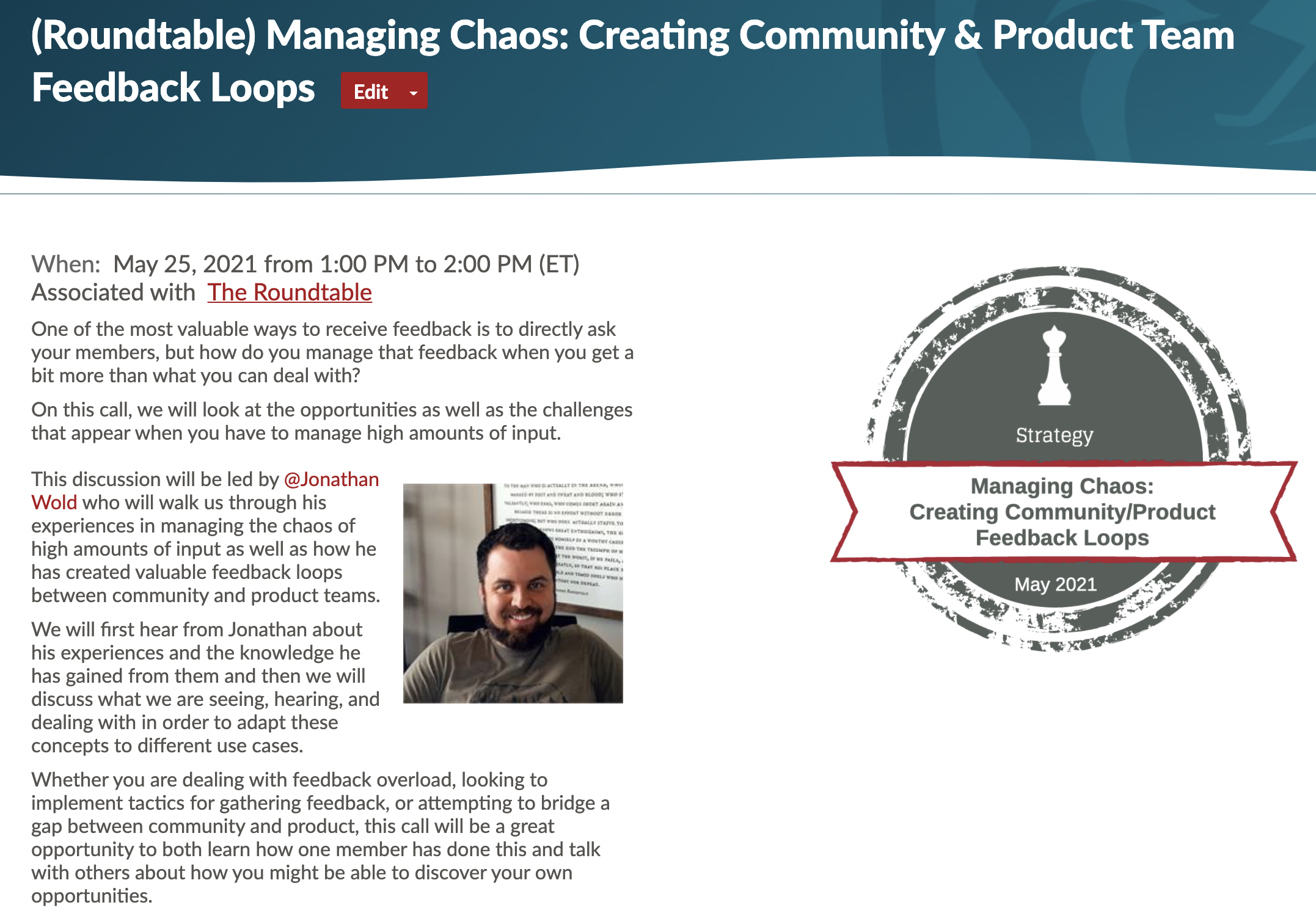
The month's penultimate call, "Managing Chaos: Creating Community & Product Team Feedback Loops", was a facilitated discussion on how we can both manage high amounts of input and then direct that input into a feedback loop between the community and product teams.
Much of this conversation focused on how we can divert chaos into something productive, while also translating chaos into something actionable for our product teams (or stakeholders!) to then work toward, allowing us to then share that work back with the community to highlight that full circle feedback loop.
Some of my key takeaways from this call include that we need to create sustainable processes for processing (ha!) input, we need to understand what matters to stakeholders (and that this changes!), recognize the value in serving as the connector, and that we can steer negative or critical feedback toward alternative solutions, being transparent, effective, and helpful.
If you want to listen in to this call, you can find the edited Roundtable Recording here.
|
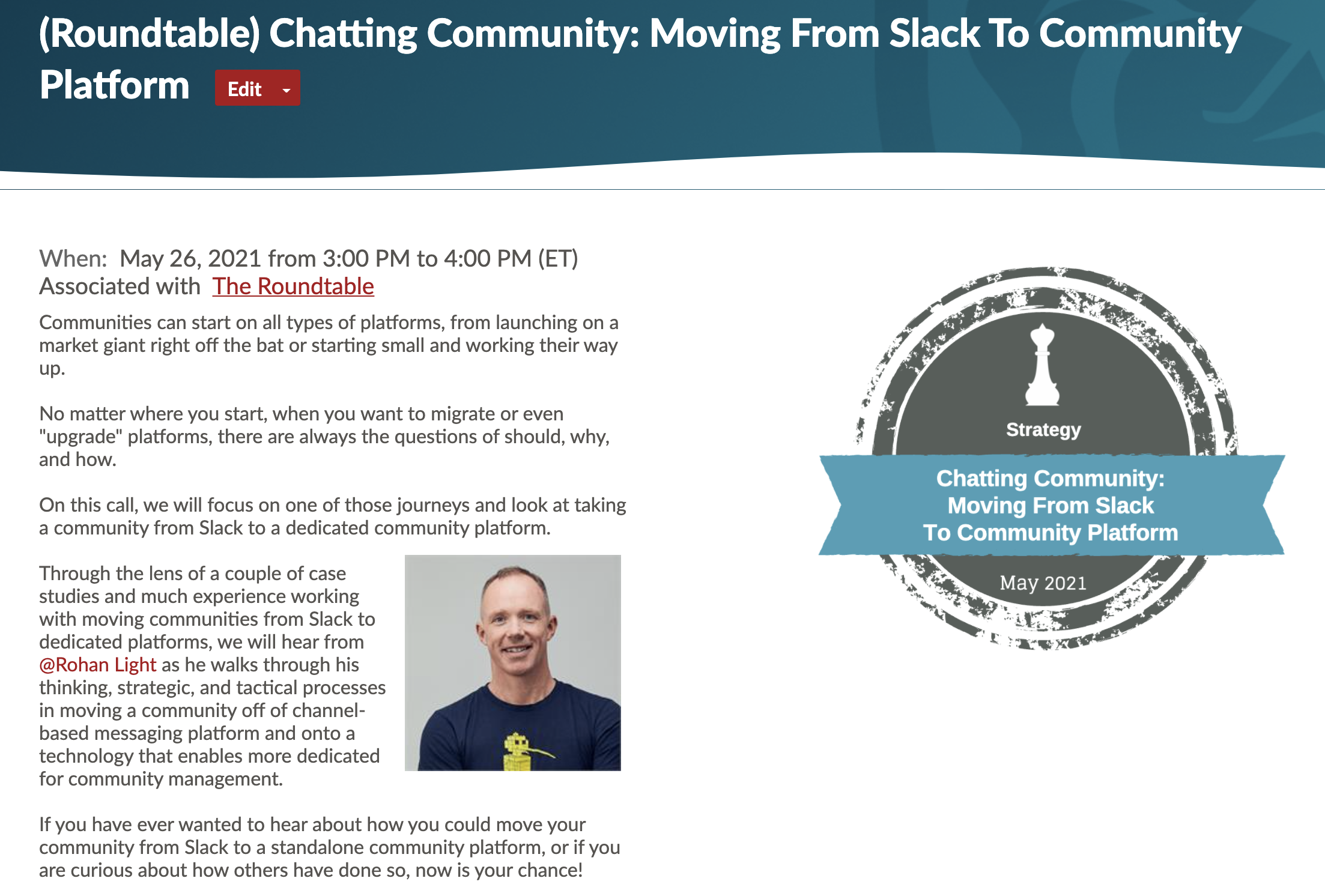
Our final Roundtable Call in May rounded out a month of member examples with one last one. On this call, we heard from one member as he shared his experience building out a community on Slack and how you can see communities on Slack differently from communities on a dedicated community platform.
I really appreciated one key observation that was made where, sometimes, communities are formed on a technology, and we cannot always build a foundation for it until after it forms. But, we can build out a path for the community to keep building value using the technology and tools that we have access to.
We cannot always have access to the leading tool or community platform, so we will need to make do with something lesser at one point or another, but it is more about what you do with the tool than the tool itself, so finding those opportunities is key.
If you are looking for those opportunities in Slack in particular, one member wrote up a great blog post about how you can build community on the chat tool and you can explore that here.
|
|
We heard some great examples and had some great discussions this month, so why not round it out with what we learned about members of TheCR Network overall...
What Did You Think?
For the month of May, we opened up a poll to get an understanding of our own abilities to measure "value". We know value can be discussed and show through different means, but how confident are we in being able to use any of those means to showcase the value our communities are creating?
In order to find that out, we asked TheCR Network members: Can you measure the value of your community?
What did members say? Let's find out...
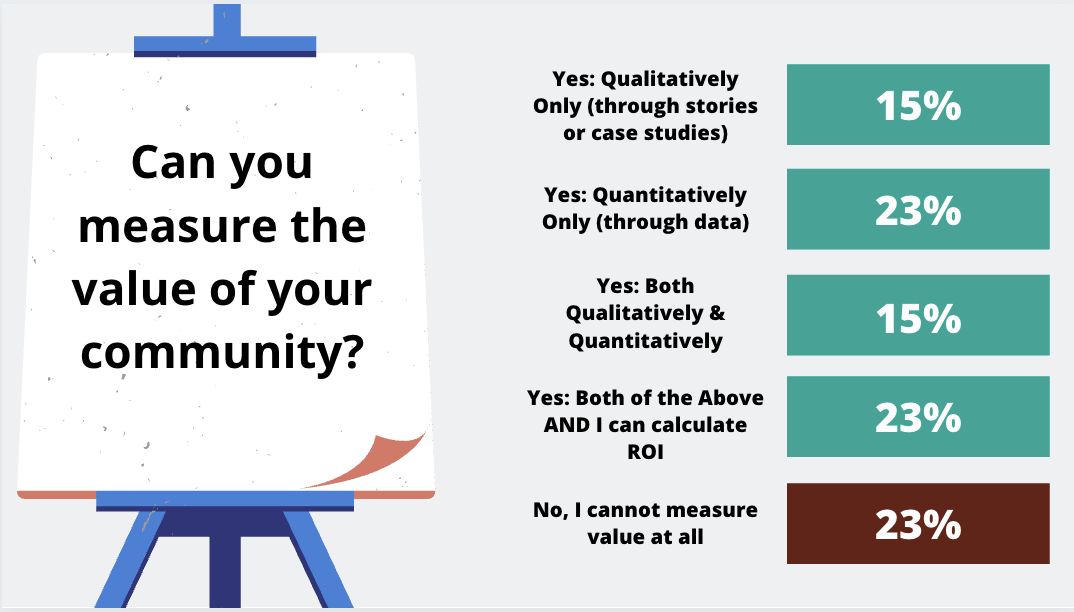
The poll results come from a sample size of 13 respondents and show that members are actually quite split in their experience/knowledge of measuring community value. With the top response tied between being able to prove value quantitatively only, proving value quantitatively, qualitatively, and through ROI, and not being able to prove ROI at all, it shows a diverse range of experience answering this poll.
We cannot assume whether the reason for this dichotomy is because of a diversity of experience (new to community vs. very experienced) or metrics and data skills (people with resources for data or are vastly experienced in analytics, for example), but we
can take this information as a reminder that our community represents people with all levels of experience and that we are all always learning.
We might be with the 23% who may not be able to prove value at all right now, but we can get there since 23% of respondents are there right now. Whether we just need resources or the right skills to get there, it is
very possible to do so. We may start with
benchmarking our skillsets and communities to see where we can take our first steps, or we may be focusing on
translating the information we do have into ROI and getting to that level of reporting. No matter where we are right now, however, we will definitely continue to explore and grow together.
After looking at how we create and accelerate impact, now our questions revolve around what we do with this information...
So, Where Do We Go From Here?
After discussing value and impact, we are looking back at one key area that we need to understand in order to prove success and show this value: metrics.
For the month of June in TheCR Network, we are looking at how we Measure What Matters. For the third year in a row, we will be exploring metrics, dashboards, and how we all measure (as well as define and communicate) what matters in our communities. Parts of this conversation will include the public release of the annual State of Community Management report as well as member examples and discussions with guest speakers.
So, if any of these conversations or concepts have sparked an idea or recommendation from you, let us know! While we plan our programming calendar, we also leave space for reactive programming, spur-of-the-moment topics, and member involvement, so leave us a note or send us a message and we'll get something together to address
your topics of interest.
And if you're not a member of TheCR Network, or if you know someone who isn't a member of TheCR Network, but would love to participate in these conversations, please reach out! We're happy to talk about how you or they can get involved.
If you'd rather do that yourself, you can
find out more about how to join TheCR Network here.